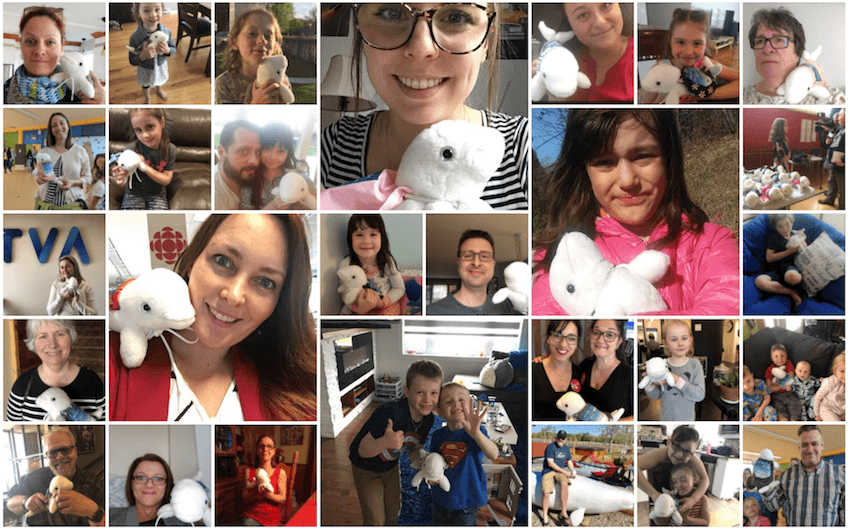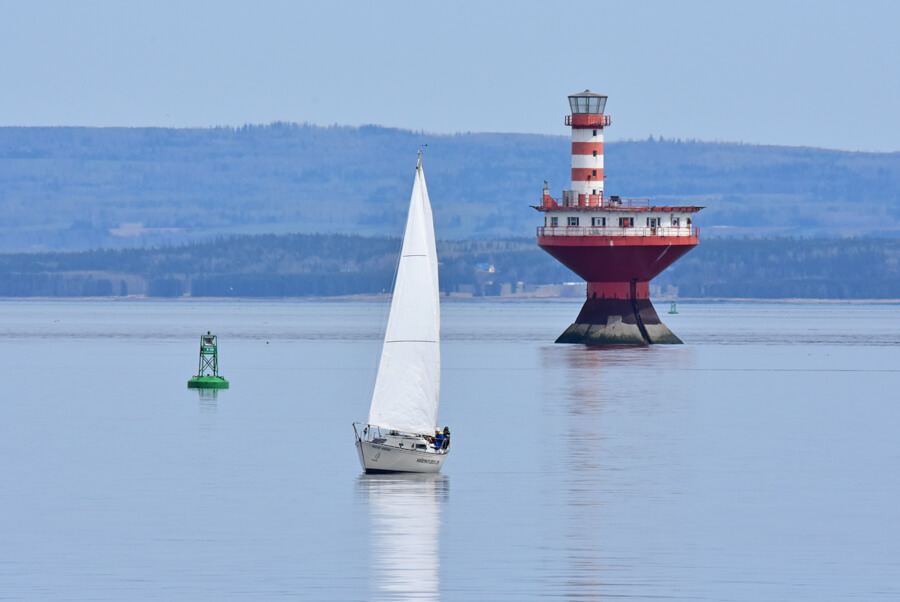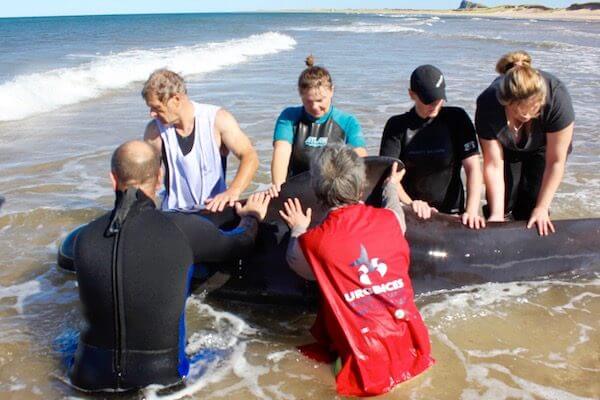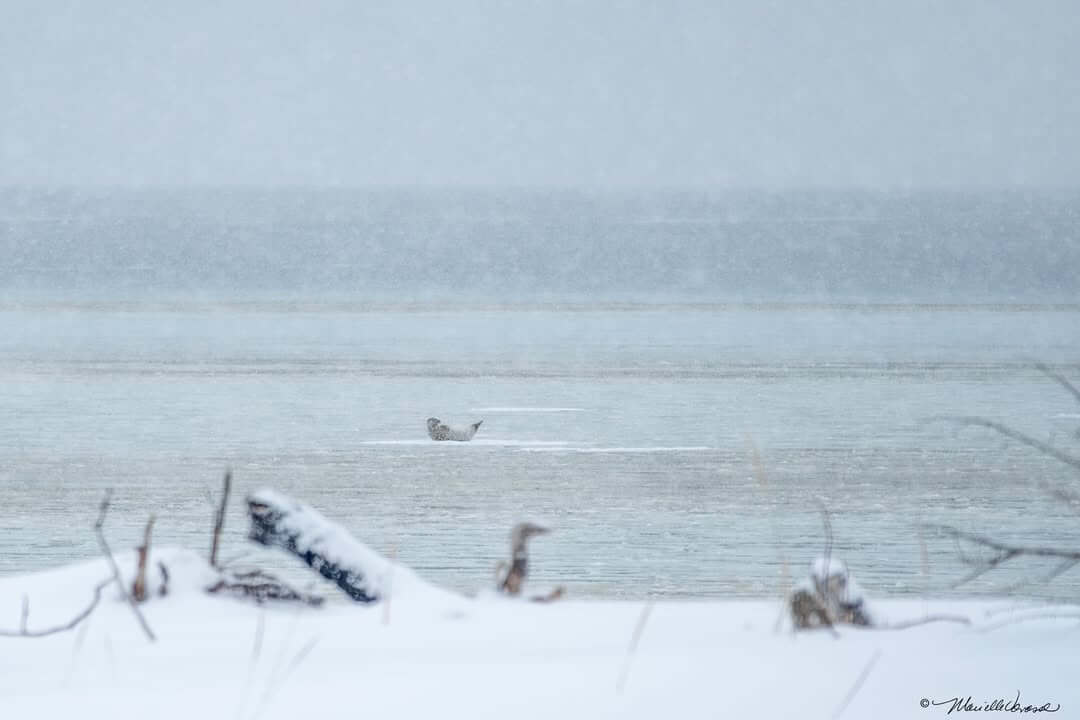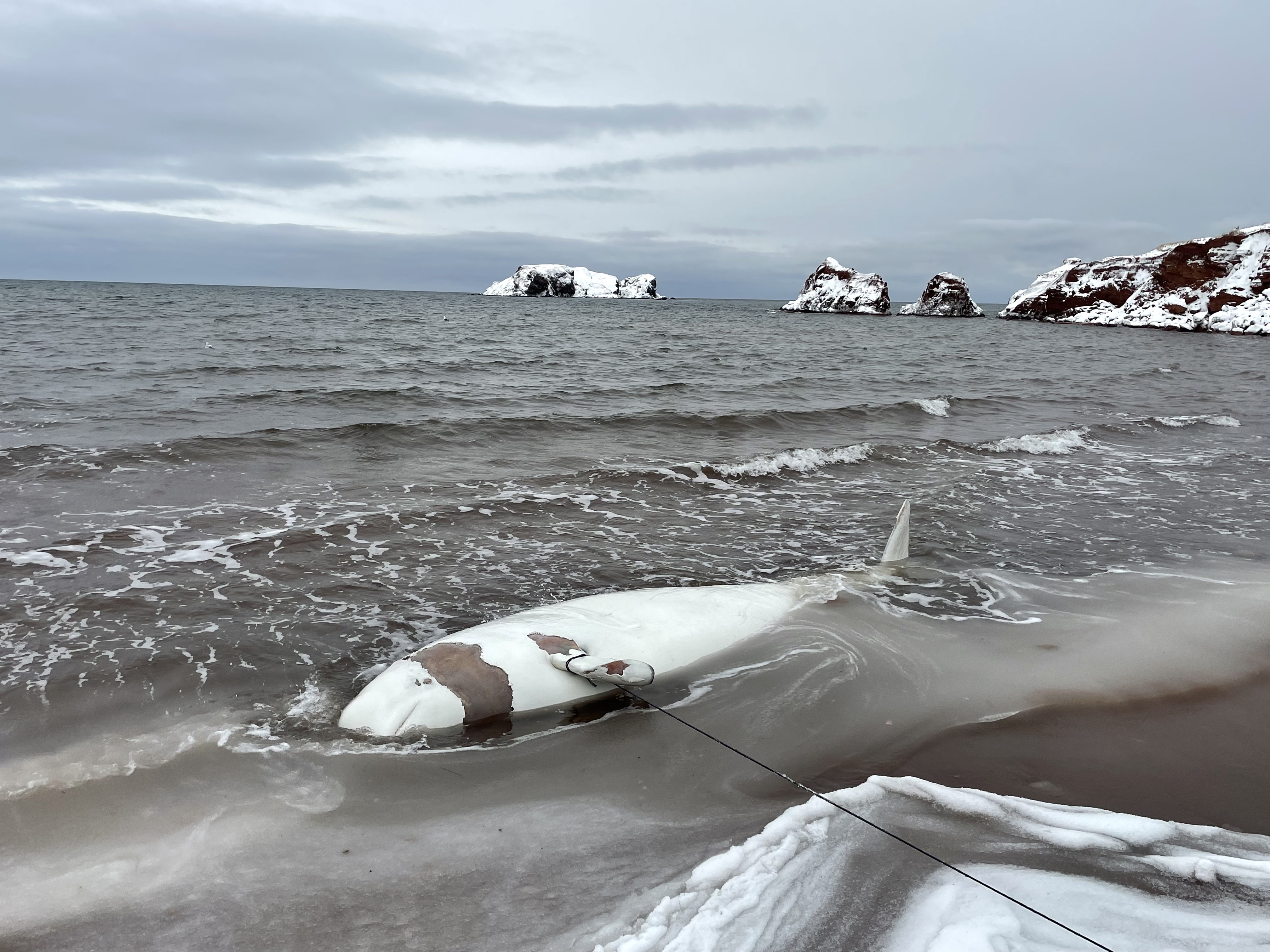Rethink consumer habits
Over 80% of all goods worldwide are moved by ship. The St. Lawrence, a genuine gateway to North America, records nearly 5,000 merchant vessels every year. In addition to the high risk of collisions, underwater noise is harmful to marine mammals. By reducing our consumption and opting for local products, the need for delivery by ship is reduced, as are emissions, noise pollution and the risk of collisions.
Consume Sustainably Caught Products
Fishermen cherish the St. Lawrence and its marine environment. However, despite practices that are intended to be as environmentally friendly as possible, overfishing or bycatch can occur. Every year, the Quebec Marine Mammal Emergency Response Network receives reports of whales or seals caught in nets or fishing gear.
Favouring products caught from sustainable fisheries helps protect wild species. In Canada, for example, Seachoice offers tools to make informed seafood choices. Another logo to watch for is that of the Marine Stewardship Council, which ensures that every product bearing the initials MSC is harvested using responsible practices. Ocean Wise also has a seafood program to display “ocean-friendly” certification in restaurants and shops for both wild and farm-raised fishery products.
In Quebec, the Smarter Seafood certification encourages restaurants and fishmongers to offer new flavours from among the many edible species of the St. Lawrence, and thereby reduce fishing pressure on certain populations.
Reduce plastic consumption
We use enormous quantities of plastic, which are often found in the water in whole or in fragments before entering the food chain. Whales are at the top of this chain, which makes them all the more vulnerable. Reducing such consumption comes down to simple gestures such as using a reusable cup for your coffee or always having a reusable shopping bag handy. First and foremost, one must realize the omnipresence of plastics and packaging, and learn to reduce their presence in our lives (buy in bulk, drink tap water, refuse straws, etc.).
Conserve Water and Use Biodegradable Products
Reducing our water consumption helps reduce both the amount of water taken from the environment as well as the quantity of wastewater discharged into the river with concentrations of various pollutants. Through our wastewater, we can actually transmit diseases to animals. The problem is such that it can even affect the lungs of whales! For our shampoos, soaps, detergents, and other household products and toiletries, choose products that are biodegradable and as mild as possible for the environment.
In one way or another, all the products we use will end up in the environment. Pesticides used in gardens, for example, make their way into our watercourses via rain and runoff. If you use a septic tank, it is even more important to use biodegradable products that are not harmful to the environment.
Reduce pesticide Use
Certain products such as fertilizers seem to favour the appearance of hypoxic (low oxygen) zones in the deep waters of the St. Lawrence. These areas affect the organisms that whales feed on, and ultimately the whales themselves. If you have a flower or vegetable garden, minimize your use of chemical pesticides and herbicides. Whenever you can, opt for organic foods.

